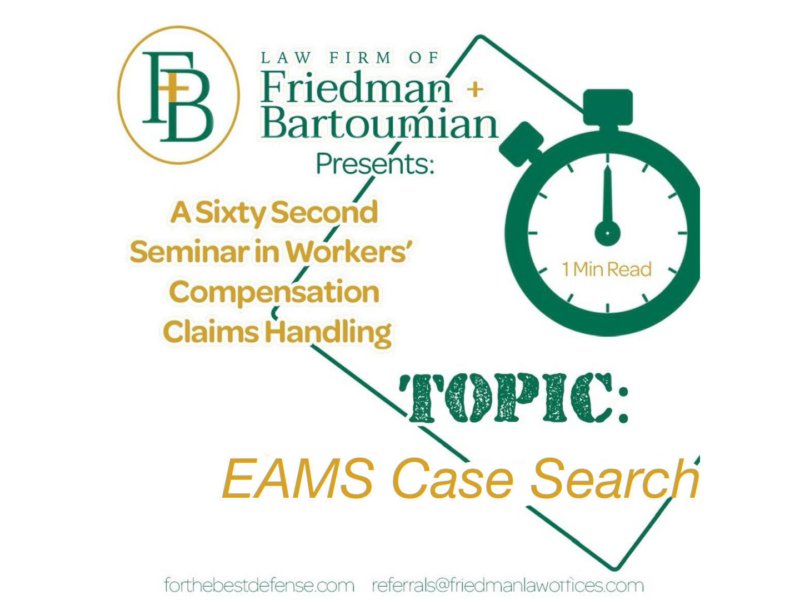There are times in workers’ compensation matters where attorneys on both sides are bewildered when reviewing a utilization review (UR) decision denying requested medical treatment, especially when the denial substantially increases the value of the permanent disability entitlement to the injured worker. Twice we have seen this done over the past few months. The first …
Overriding UR: A 60-Second Seminar in Workers’ Compensation Claims HandlingRead More

